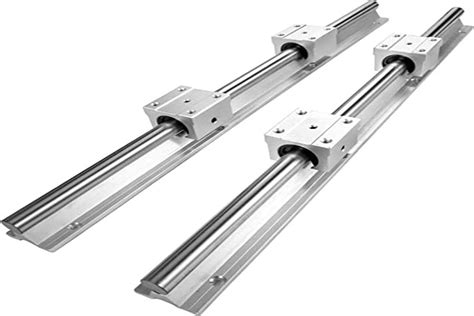cnc machine lubrication oil grade We will discuss various types of lubrication oil, such as mineral oil, synthetic oil, . The E6013 welding rod is the best to stick weld thin mild steel and is known as a sheet metal rod. An E6013 has a flux covering with high amounts of rutile. Rutile creates the smoothest arc with light penetration that won’t burn through the joint as easily as other rods.
0 · oil for slide rails cnc
1 · lubrication pump for cnc machine
2 · lubricant used in cnc machine
3 · grease for cnc machine
4 · fc2 oil cross reference
5 · epo grease for cnc router
6 · cutting oil for cnc machine
7 · cnc guide rail lubricants
MIG Welding for Sheet Metal MIG welding is one of the most appropriate methods used for sheet metal. This method is favorable as it leaves room for beginners to practice and get better.
Selecting the appropriate lubrication oil for your CNC machine involves considering various factors such as viscosity, additives, compatibility, and industry-specific requirements. This section explores each factor in detail and provides insights into how they can influence the choice of .In this comprehensive guide, we will explore the importance of lubrication in CNC .We will discuss various types of lubrication oil, such as mineral oil, synthetic oil, .In this comprehensive guide, we will explore the importance of lubrication in CNC machines, the different types of lubrication oils available, and best practices for effectively lubricating your .
We will discuss various types of lubrication oil, such as mineral oil, synthetic oil, semi-synthetic oil, and specialty oils, and explain their characteristics and suitable applications. Understanding . The correct lubricating oil of each transmission part and the sliding surface of the coil machine is a measure to reduce power consumption and increase the life of the machine. .
Selecting an appropriate lubricant is as essential as having a functional lubrication system in your CNC machine tool. The lubricant, which acts as the mediator between moving machine parts, directly impacts the . Some maintenance tips for CNC lubrication system as follows: 1 Manual lubrication pump for CNC machine: Check the Manual lubrication system every day, cap covered to prevent dust, and oil enough to pump into oil pipe; .
oil for slide rails cnc

1. Types of lubricants for CNC machining. Water-based lubricant; This type of lubricant has high heat dissipation properties, which help to dissipate the cutting heat effectively and reduce friction. It is also easy to be cleaned .What are the best lubrication oil grade for CNC machine? For CNC machines, ISO VG 32, 46, or 68 oil grades are commonly recommended, depending on the machine’s design and operating conditions. These oils offer the right viscosity . Several damaging effects can arise from using the incorrect lube on CNC machines: Premature wear on the ballscrew and ways, due to friction because the oil is too .
Your machine will have lubrication specs and it is important to follow those to insure you are using the correct type and amount for your machine. Coolants come in three categories: soluble oils, synthetic fluids and semi-synthetic fluids.
Selecting the appropriate lubrication oil for your CNC machine involves considering various factors such as viscosity, additives, compatibility, and industry-specific requirements. This section explores each factor in detail and provides insights into how they can influence the choice of .In this comprehensive guide, we will explore the importance of lubrication in CNC machines, the different types of lubrication oils available, and best practices for effectively lubricating your CNC machine.We will discuss various types of lubrication oil, such as mineral oil, synthetic oil, semi-synthetic oil, and specialty oils, and explain their characteristics and suitable applications. Understanding the pros and cons of each type will help you choose the . The correct lubricating oil of each transmission part and the sliding surface of the coil machine is a measure to reduce power consumption and increase the life of the machine. Therefore, the lubricating oil for CNC rolling machine needs to select the correct lubricating oil and lubricating oil and establish the required lubrication system.
Selecting an appropriate lubricant is as essential as having a functional lubrication system in your CNC machine tool. The lubricant, which acts as the mediator between moving machine parts, directly impacts the machine's performance, lifespan, and energy efficiency. Some maintenance tips for CNC lubrication system as follows: 1 Manual lubrication pump for CNC machine: Check the Manual lubrication system every day, cap covered to prevent dust, and oil enough to pump into oil pipe; Press the hand lever on time as requirements to make oil sent out; Check CNC kits, make sure they get lubrication oil; 2 Auto . 1. Types of lubricants for CNC machining. Water-based lubricant; This type of lubricant has high heat dissipation properties, which help to dissipate the cutting heat effectively and reduce friction. It is also easy to be cleaned and environmentally friendly.
What are the best lubrication oil grade for CNC machine? For CNC machines, ISO VG 32, 46, or 68 oil grades are commonly recommended, depending on the machine’s design and operating conditions. These oils offer the right viscosity for high-speed, high-precision operations. Several damaging effects can arise from using the incorrect lube on CNC machines: Premature wear on the ballscrew and ways, due to friction because the oil is too light; Using oil that is too thick can create stick-slip, or a jerking motion, and greatly reduces repeatability; Cause seals to prematurely harden; Create hard spots in the lube .Your machine will have lubrication specs and it is important to follow those to insure you are using the correct type and amount for your machine. Coolants come in three categories: soluble oils, synthetic fluids and semi-synthetic fluids.
Selecting the appropriate lubrication oil for your CNC machine involves considering various factors such as viscosity, additives, compatibility, and industry-specific requirements. This section explores each factor in detail and provides insights into how they can influence the choice of .
In this comprehensive guide, we will explore the importance of lubrication in CNC machines, the different types of lubrication oils available, and best practices for effectively lubricating your CNC machine.
We will discuss various types of lubrication oil, such as mineral oil, synthetic oil, semi-synthetic oil, and specialty oils, and explain their characteristics and suitable applications. Understanding the pros and cons of each type will help you choose the . The correct lubricating oil of each transmission part and the sliding surface of the coil machine is a measure to reduce power consumption and increase the life of the machine. Therefore, the lubricating oil for CNC rolling machine needs to select the correct lubricating oil and lubricating oil and establish the required lubrication system. Selecting an appropriate lubricant is as essential as having a functional lubrication system in your CNC machine tool. The lubricant, which acts as the mediator between moving machine parts, directly impacts the machine's performance, lifespan, and energy efficiency.
Some maintenance tips for CNC lubrication system as follows: 1 Manual lubrication pump for CNC machine: Check the Manual lubrication system every day, cap covered to prevent dust, and oil enough to pump into oil pipe; Press the hand lever on time as requirements to make oil sent out; Check CNC kits, make sure they get lubrication oil; 2 Auto . 1. Types of lubricants for CNC machining. Water-based lubricant; This type of lubricant has high heat dissipation properties, which help to dissipate the cutting heat effectively and reduce friction. It is also easy to be cleaned and environmentally friendly.
lubrication pump for cnc machine
What are the best lubrication oil grade for CNC machine? For CNC machines, ISO VG 32, 46, or 68 oil grades are commonly recommended, depending on the machine’s design and operating conditions. These oils offer the right viscosity for high-speed, high-precision operations.
Several damaging effects can arise from using the incorrect lube on CNC machines: Premature wear on the ballscrew and ways, due to friction because the oil is too light; Using oil that is too thick can create stick-slip, or a jerking motion, and greatly reduces repeatability; Cause seals to prematurely harden; Create hard spots in the lube .

weather tight electrical enclosures
lubricant used in cnc machine
West Necluda Scout's Hill, Hills of Baumer and Dueling Peaks From the seed next to the Ja Baij Shrine, jump with the Paraglider until you reach the ground to find another Korok under a plate that you have to freeze with Stasis (a bit more to the south).
cnc machine lubrication oil grade|fc2 oil cross reference